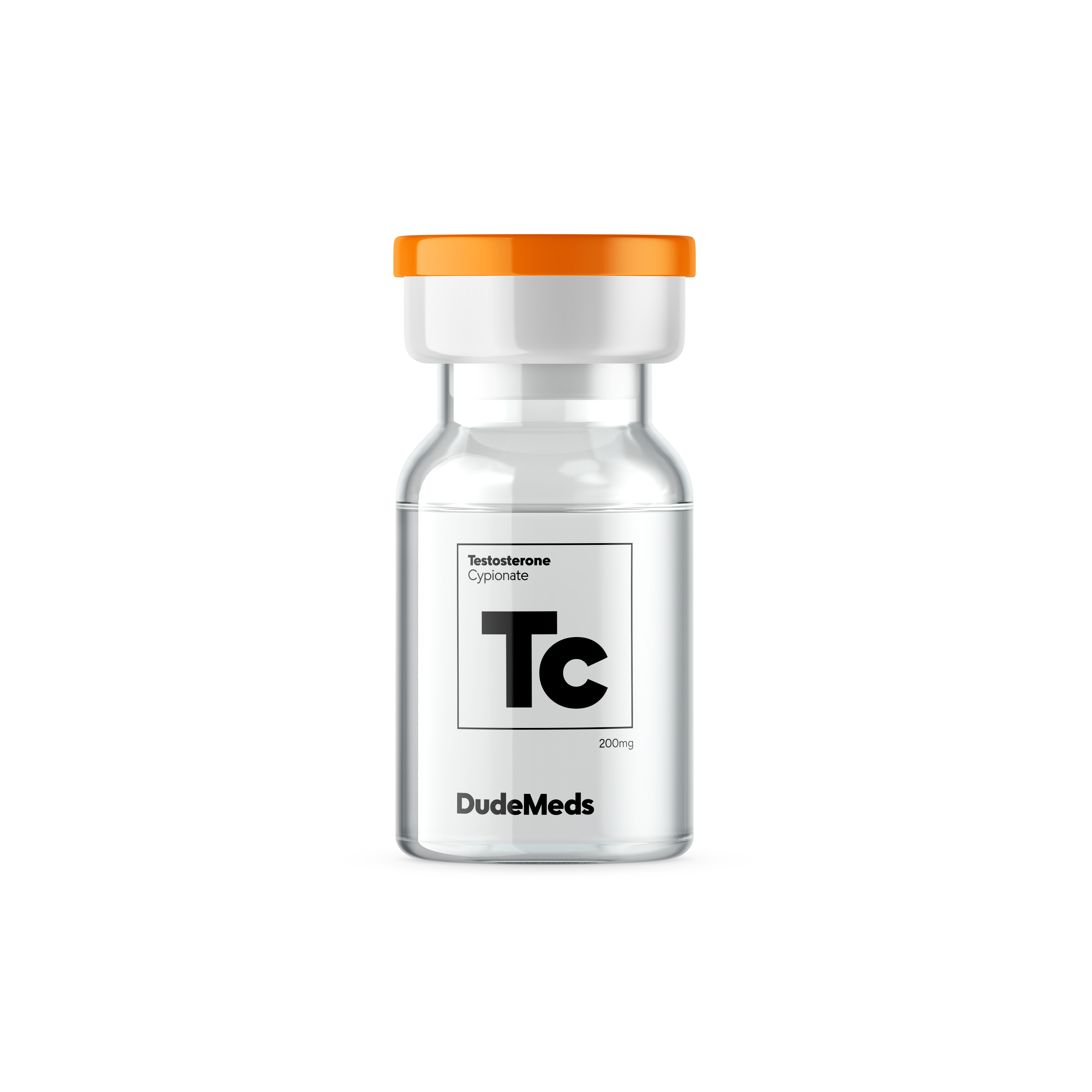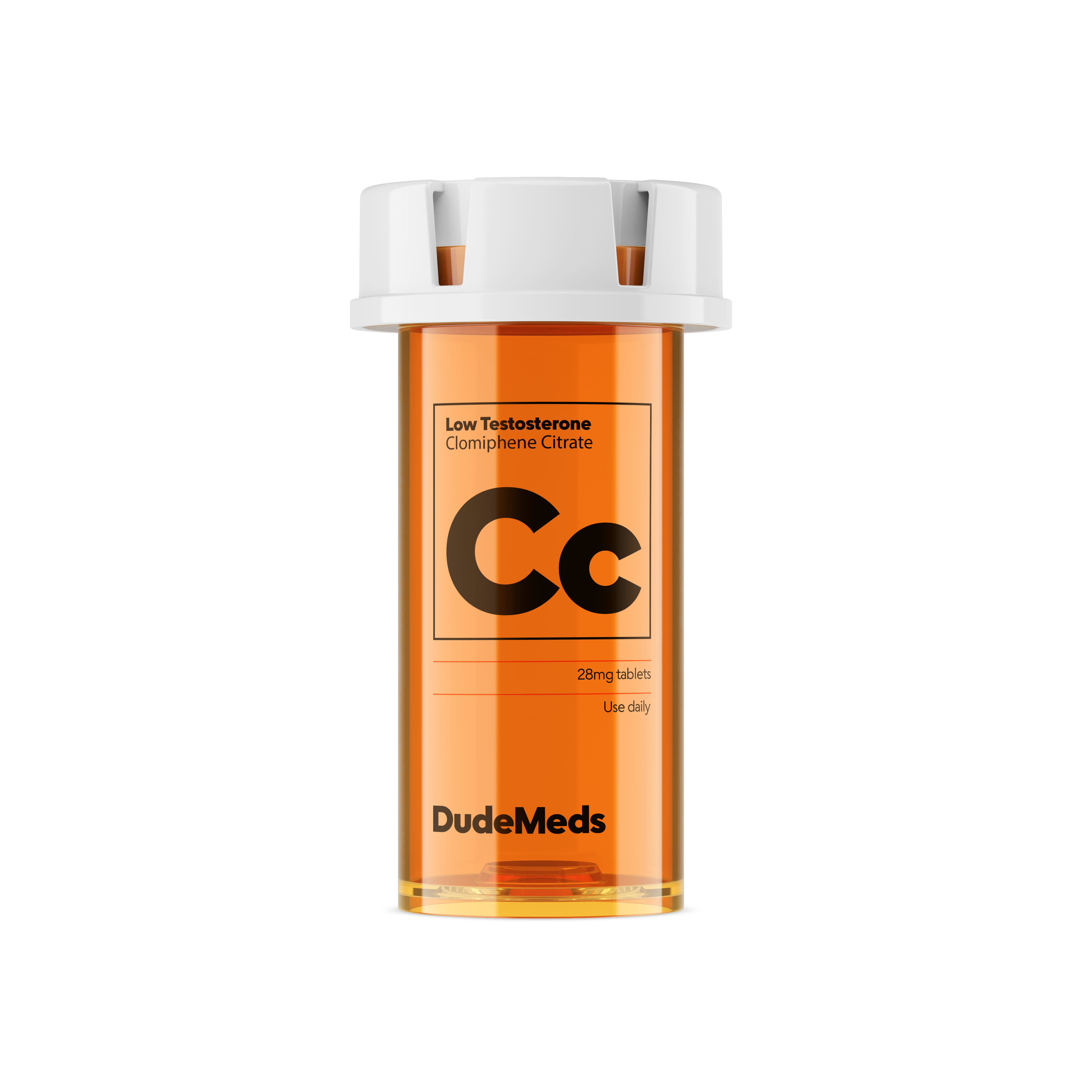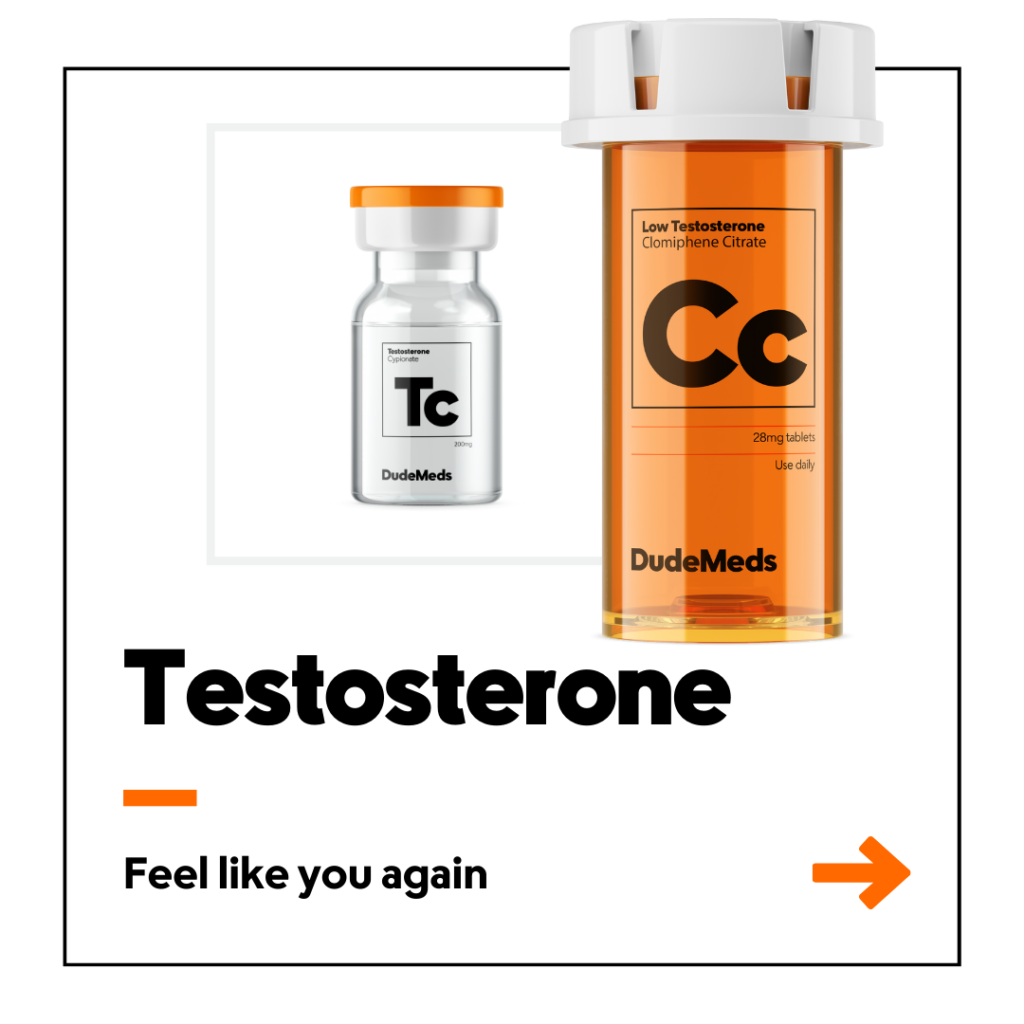
TESTOSTERONE PRESCRIBED ONLINE
Recharge your life!
Some call it the elixir of the gods, we call it “Vitamin T”
Feeling off or like a shell of the person you once were?
Take control and get a scientific approach with trained Medical Doctors on your side. All lab work and medications digitally prescribed and shipped free right to your door.
100% Online Telemedicine Solution
Testosterone Prices From:
$79/ month
Testosterone levels naturally decline as men age
Decline around 1-2% per year starting in their thirties
Next steps:
- Click a get started button on the page to begin the simple process. This will cover the basics to determine if Testosterone is right for you.
- Clinically we request recent lab work to prescribe Testosterone.
- Here are the 3 options for lab work:
-
Option 1
Upload recent Lab work you already have within 6 months (needs to include total testosterone)
-
Option 2
Order a DudeMeds at-home Lab test, very small blood sample required that is virtually painless.
-
Option 3
Request a FREE lab requisition form and visit your local Quest® Diagnostics or LabCorp.
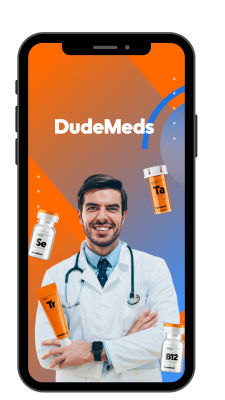
Treatment options
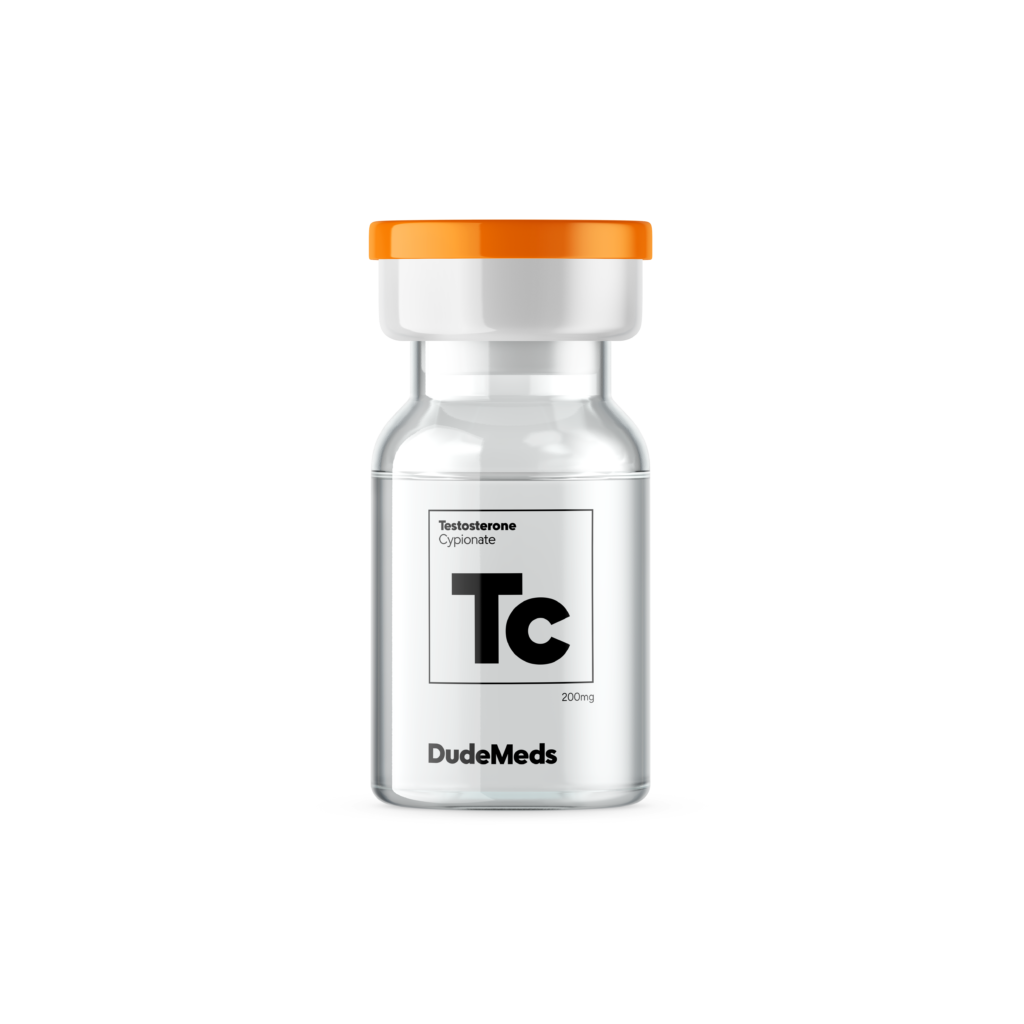
Testosterone Therapy [TRT]
$79 per month
includes: Testosterone Cypionate, Anastrazole & Syringes

TRT w/Pregnyl - HCG
$159 per month
includes: Testosterone Cypionate, Pregynl-HCG, Anastrazole & Syringes
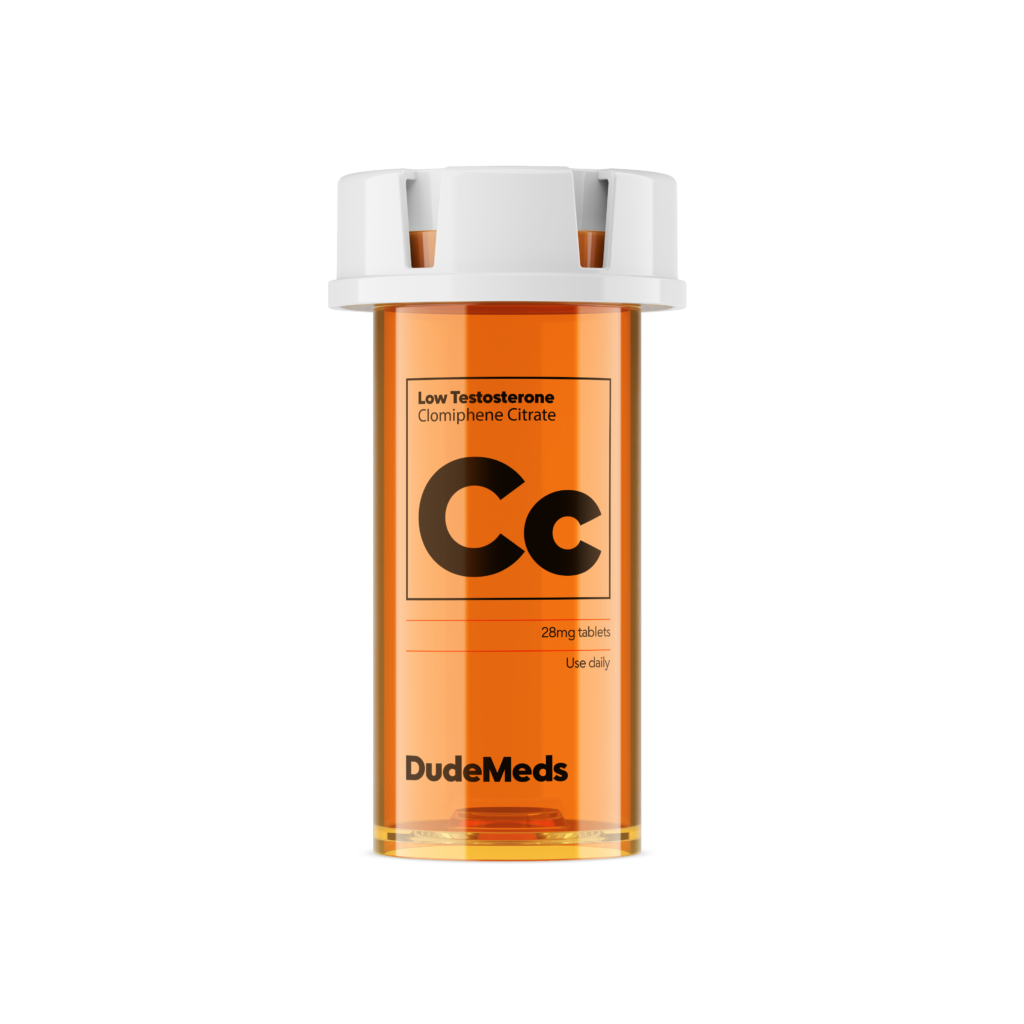
Clomid - clomiphene citrate
$99-$116 per month
Low Testosterone Treatment Capsules [Oral Route]
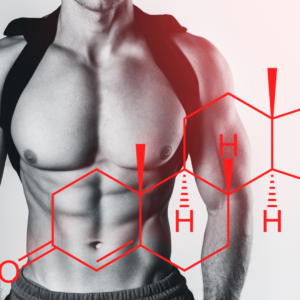
What is Low Testosterone?
Low testosterone, also known as low T, is a condition where a man’s body does not produce enough testosterone, the primary male sex hormone. Testosterone is important for the development and maintenance of male sexual characteristics, such as deepening of the voice, growth of facial and body hair, and muscle mass.
Naturally Declines With Age
Testosterone levels naturally decline with age, but low testosterone can also be caused by other factors, such as obesity, certain medications, chronic illnesses like diabetes or kidney disease, and injury or infection affecting the testicles.
Symptoms Of Low T
Symptoms of low testosterone can include decreased sex drive, erectile dysfunction, decreased energy and fatigue, decreased muscle mass, decreased bone density, and mood changes such as depression or irritability.
Diagnoses of Hypogonadism
Low testosterone can be diagnosed by your symptoms and a blood test to measure the levels of testosterone in the body. Treatment options for low testosterone include testosterone replacement therapy, lifestyle changes such as exercise and weight loss, and addressing underlying medical conditions if present.
Learn More About TRT Meds
Testosterone Therapy: What to expect
Months 1-3
Months 4-6
Months 7 and on ....
Testosterone Therapy: What to expect
Months 1-3
Increased energy and stamina - Improved mood and cognitive function - Increased muscle mass and strength - Reduced body fat and improved body composition - Increased bone density and reduced risk of osteoporosis - Improved sexual function and libido - Improved sleep quality
Months 4-6
Continued improvements in energy, mood, and cognitive function - Further increases in muscle mass and strength - Continued reductions in body fat and improved body composition - Further improvements in bone density Continued improvements in sexual function and libido - Continued improvement in sleep quality
Months 7 and on ....
ontinued improvements in energy, mood, and cognitive function - Possible plateau in muscle mass and strength gains, but continued maintenance of gains - Further reductions in body fat and improved body composition - Continued improvements in bone density - Continued improvements in sexual function and libido - Continued improvement in sleep quality
Testosterone: The science
Nerd Stuff
Testosterone is a steroid hormone that activates genes in cells throughout the body, promoting masculine traits like muscle mass, bone density, and body hair. It also regulates mood, cognition, libido, and sperm production. Its production and release are controlled by a feedback loop involving the brain's hypothalamus and pituitary gland and the testes.
TL;DR
Testosterone binds to cells in the body to promote masculine characteristics, regulate mood, cognition, libido, and sperm production. Its production is regulated by a complex feedback loop.
View: Full Prescribing Information
Information directly from the FDA website. Testosterone Injections are an androgen indicated for testosterone replacement therapy in males for conditions associated with a deficiency or absence of endogenous testosterone
Testosterone FAQ's: What you need to know
Can I easily communicate with my DudeMeds Doctor?
DudeMeds platform was built with customer service as a priority. It allows for seamless confidential communication between you and your DudeMeds medical provider. Once your account is activated you can send private messages directly to the doctor 24/7.
Also, Medication refills can be requested directly within your account in most cases without the need of additional consultations or questionnaires. Our goal is to make the digital doctors office truly a simple and efficient alternative to main stream medicine eliminating all the aspects that make a traditional doctors visit unpleasant.
Is Testosterone treatment right for me?
Exogenous testosterone cypionate can increase testosterone levels in men with low levels, leading to improved sex drive, erectile function, muscle mass and strength, and bone density. However, testosterone replacement therapy is not suitable for everyone and can have potential risks and side effects. Consulting a DudeMeds provider is essential to evaluate medical history, perform necessary tests, and provide personalized recommendations. They can discuss the benefits and risks of testosterone replacement therapy and help make an informed decision about whether it is suitable.
When Is Testosterone indicated?
Exogenous testosterone, which is a synthetic form of the hormone, may be indicated for men with low levels of natural testosterone, a condition known as hypogonadism. Hypogonadism can result from several factors, such as aging, injury to the testicles, genetic disorders, or other medical conditions such as obesity, diabetes, or certain medications.
Exogenous testosterone may also be indicated for men who experience symptoms related to low testosterone levels, including reduced sex drive, erectile dysfunction, decreased muscle mass and strength, fatigue, depression, and bone loss.
It’s important to note that exogenous testosterone should only be prescribed by a healthcare provider after a thorough evaluation of a patient’s medical history, physical examination, and laboratory tests, as well as an assessment of the potential benefits and risks of the treatment. Inappropriate use or misuse of exogenous testosterone can lead to adverse effects, such as an increased risk of heart disease, stroke, prostate cancer, and other health problems.
What dosage of DudeMeds ED medications are available?
The typical dosage of exogenous testosterone therapy can vary depending on several factors, such as the patient’s age, weight, medical history, symptoms, and the form of testosterone used. Testosterone replacement therapy can be administered in different forms, including subcutaneous injections, intramuscular injections or topical gels.
In general, for injectable forms of testosterone, such as testosterone cypionate or testosterone enanthate, the initial dose is often around 50mg to 250mg, injecting either once or twice weekly, although some healthcare providers may recommend higher or lower doses depending on individual needs. The dose can be adjusted based on the patient’s response to treatment and testosterone levels measured in follow-up blood tests.
It’s important to note that the dosages of exogenous testosterone therapy should be individualized to each patient’s specific needs and carefully monitored by a healthcare provider to avoid potential adverse effects or complications.
Who should not take Testosterone Therapy?
Exogenous testosterone therapy is contraindicated for certain medical conditions where it may exacerbate the underlying condition or increase the risk of adverse effects. Some of the top medical conditions that may be contraindicated for exogenous testosterone therapy include:
- Prostate or breast cancer: Exogenous testosterone can stimulate the growth of prostate or breast cancer cells and is contraindicated for men with a history of or current prostate or breast cancer.
- High red blood cell count (polycythemia): Testosterone therapy can increase the production of red blood cells and may worsen polycythemia, a condition where the blood contains too many red blood cells, leading to an increased risk of blood clots and stroke.
- Obstructive sleep apnea (OSA): Testosterone therapy can worsen OSA, a condition characterized by frequent pauses in breathing during sleep, leading to an increased risk of complications such as heart disease and stroke.
- History of blood clots: Testosterone therapy can increase the risk of blood clots, especially in men with a history of blood clots or a family history of clotting disorders.
It’s important to note that the above list is not exhaustive, and a healthcare provider should evaluate each patient’s medical history and individual risk factors to determine the appropriateness of exogenous testosterone therapy.
Will DudeMeds Change my treatment if it's not working?
Although DudeMeds Testosterone is effective for most men, some may not achieve the desired results from the initial treatment plan. That’s why we offer the flexibility to communicate day or night with your DudeMeds medical team, allowing you to find the most suitable treatment for your needs. Simply message our clinical team through your account, and they will assist you in finding alternative options, which could be simply adjusting your dosage or considering additional medications.
DudeMeds Medications are Cheaper than others, Why?
DudeMeds strives to deliver the highest quality Meds at the best prices coupled with the absolute best patient experience and customer satisfaction.
TRT is a treatment that we feel most men can benefit from and our goal is to make it affordable to all those that qualify for it.
Would taking more Testosterone than prescribed be a problem?
Taking more testosterone than prescribed can be a problem and can increase the risk of adverse effects or complications. Exogenous testosterone therapy should only be prescribed and monitored by a qualified healthcare provider who can carefully evaluate a patient’s medical history, symptoms, and laboratory tests to determine the appropriate dosage and duration of therapy.
Taking more testosterone than prescribed can result in abnormally high levels of the hormone in the body, a condition known as testosterone toxicity or testosterone overdose. Symptoms of testosterone toxicity may include mood swings, aggression, acne, hair loss, enlarged prostate, fluid retention, high blood pressure, and an increased risk of blood clots and heart disease.
In addition to the potential adverse effects, taking more testosterone than prescribed may also be illegal and subject to legal and ethical consequences. It’s important to follow the prescribed dosage and frequency of exogenous testosterone therapy and to consult with a healthcare provider if there are concerns or questions about the treatment.
Low-T, low testosterone, androgen deficiency, andropause & hypogonadism, What are the differnces?
While Low-T, low testosterone, androgen deficiency, andropause, and hypogonadism are related to low levels of testosterone in the body, they are not interchangeable terms and refer to slightly different conditions.
Low-T or Low Testosterone: Low-T is a condition where a man has lower than normal levels of testosterone in his body. The symptoms of Low-T include decreased sex drive, erectile dysfunction, fatigue, muscle weakness, and mood changes. Low-T is not a medical diagnosis but rather a description of a man’s testosterone level.
Androgen deficiency: Androgen deficiency refers to a broader condition in which the body does not produce enough androgen hormones, including testosterone. This can lead to a variety of symptoms, including those of Low-T as well as decreased bone density, decreased muscle mass, and increased body fat.
Andropause: Andropause is a term used to describe the natural decline in testosterone levels that occurs as men age. It is sometimes referred to as “male menopause,” although it is not the same as menopause in women. Symptoms of andropause include those of Low-T, as well as sleep disturbances, hot flashes, and decreased energy.
Hypogonadism: Hypogonadism is a medical condition in which the testes do not produce enough testosterone. This can be due to a variety of causes, including genetic disorders, injury, infection, or medical treatment. Symptoms of hypogonadism include those of Low-T, as well as infertility, decreased body hair, and breast enlargement.
In summary, while these terms all relate to low levels of testosterone in the body, they refer to different conditions with different underlying causes and symptoms. It is important to speak with a healthcare professional for an accurate diagnosis and appropriate treatment.
Can Testosterone therapy cause my testicles to shrink?
Testosterone therapy may lead to testicular atrophy, a reduction in testicle size, depending on dosage and duration. Exogenous testosterone reduces the natural production of testosterone, decreasing testicle size. Yet, many men do not experience testicular atrophy during testosterone replacement therapy, and careful monitoring of testosterone levels can minimize the risk. Human chorionic gonadotropin (HCG) can prevent testicular atrophy. HCG mimics luteinizing hormone, which stimulates testosterone production in the testicles. Thus, HCG can be used to stimulate testosterone production and prevent atrophy while undergoing testosterone therapy.
However, the use of HCG should only occur under the supervision of a healthcare professional, and dosage and duration depend on age, weight, and medical history. It is crucial to discuss the potential benefits and risks of HCG alongside testosterone therapy with your DudeMeds doctor.
Where can I get my blood pressure reading at?
To get a Testosterone prescription from DudeMeds, you’ll need a recent blood pressure (BP) reading. We need this info to ensure that it’s safe and appropriate for you to take the DudeMeds we prescribe. It’s simple to get a blood pressure reading for free. Just visit a pharmacy with a BP machine.
Need help locating one? Find your nearest Higi machine or Pursuant Health machine at a pharmacy near you.
